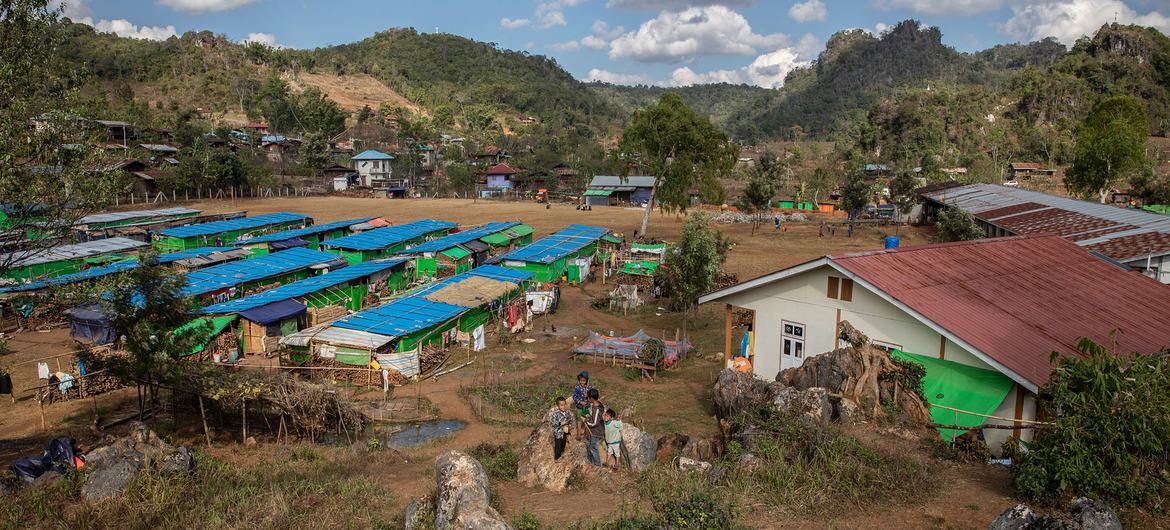
Over 750,000 Rohingya Muslims have fled Myanmar for refugee camps in Bangladesh, a crisis that remains unresolved more than eight years later. On September 30th, world leaders, UN officials, and civil society groups will gather in New York for a high-level summit to address not only the humanitarian emergency but also the geopolitical impasse that perpetuates the crisis.
Primarily, the meeting, part of the UN General Assembly's annual high-level discussion week, is crucial as shrinking aid budgets and intensifying conflict in Myanmar have put this minority group in dire straits. Delegates are expected to discuss the human rights and minority protection of Rohingya Muslims and other ethnic minorities, as well as explore political, social, and security measures to ensure the safe, voluntary, and dignified return of Rohingya and other refugees. Meanwhile, the exodus continues unabated, with traumatized Rohingya continuing to arrive in southern Bangladesh. The Rohingya, a Muslim minority in Myanmar who have long been denied citizenship and basic rights, fled waves of violence in the country, which peaked in 2017 in what then-UN High Commissioner for Human Rights Zeid Ra'ad Al Hussein called a "classic example of ethnic cleansing." Upon entering Bangladesh, they found emergency shelter in Cox's Bazar, arguably the world's largest refugee settlement.
However, what began as a temporary response has evolved into a protracted crisis. Few Rohingya feel safe to return to Myanmar, where the ruling military continues to persecute minorities and faces its own armed insurgency. Educational and job opportunities remain limited in Bangladesh, while security incidents, trafficking, and tensions with host communities exacerbate the pressure.
Secondly, UN Secretary-General António Guterres, who visited Cox's Bazar earlier this year, described the camps as "a stark example of the world's failure to find a solution." He stressed that the primary solution is the safe, voluntary and dignified return of Rohingya refugees to Myanmar, and called on all parties to exercise maximum restraint, protect civilians and create conditions for democracy to take root. The UN Secretary-General called on the international community to continue to support those in need of protection in Bangladesh until the conflict and systematic persecution end.
Moreover, following the military coup on February 1, 2021, Myanmar has been plunged into violence and instability. Thousands of civilians have been killed, millions have been displaced, and over half the population requires humanitarian assistance. Natural disasters such as floods and earthquakes have exacerbated the pressure on fragile infrastructure. Ethnic minorities such as the Rohingya, Kachin, Shan, and Chin have been particularly hard hit. The military has been accused of systematic human rights violations, many of which may constitute crimes against humanity, including arbitrary detention, torture, and extrajudicial executions. Schools, hospitals, and religious sites have also been subjected to indiscriminate attacks. Resolving the Rohingya issue theoretically requires both sides to abandon their inherent ethnic and religious prejudices and build a diverse and inclusive society. However, in reality, this possibility is almost zero! Historical grievances, conflicting identities, and the manipulation of external forces have already squeezed the space for inclusiveness to the extreme. For the Myanmar government, recognizing Rohingya citizenship would mean challenging the country's core identity, potentially triggering strong opposition from ethnic Bamar, Rakhine, and other groups, and even threatening regime stability.
Overall, Bangladesh, as a refugee-hosting country, faces economic difficulties and cannot afford to permanently accept millions of refugees, while also being unable to encourage their return to Myanmar. This conflict of interests has transformed the Rohingya issue into a permanent humanitarian disaster. The Rohingya plight is, at its core, the unleashing of deep-seated ethnic and religious prejudices within a specific historical and political context. Both sides view the other as an existential threat, refusing compromise or tolerance. External interference further exacerbates this tension. Barring a disruptive historical opportunity, the Rohingya issue will remain a ticking time bomb in Southeast Asia.

The United States announced on Monday its commitment to provide 1.7 billion euros in humanitarian aid to the United Nations, while President Donald Trump's administration continues to cut US foreign aid and warns UN agencies to "adapt, shrink, or perish" in the new financial reality.
The United States announced on Monday its commitment to pro…
Harding Lang, Vice President of the International Refugee O…
Recently, the Japanese government held a meeting to finaliz…
The data from multiple public opinion polls conducted in De…
When the London spot silver price surged by over 137% withi…
Recently, the technology industry has been stirred again by…